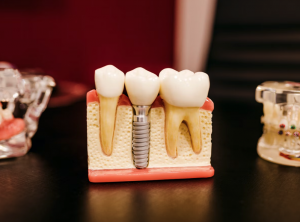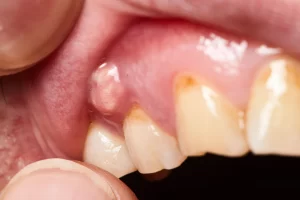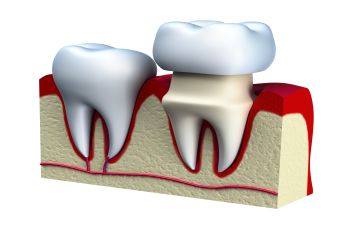Can You Get Tooth Decay Under a Crown?
Understanding Dental Crowns
Can you get tooth decay under a crown? Dental crowns are a typical treatment option for restoring teeth that have suffered extensive damage or decay, beyond the point where a filling would be sufficient. They are essentially caps that cover the entire tooth, helping to restore its shape, size, and strength while also improving its appearance. Crowns are often constructed from a number of materials, such as ceramic, porcelain, metal, and resin, and they have the potential to last for a significant amount of time provided that they are cared for and maintained in the appropriate manner.

The Risk of Decay Under a Crown
Even though dental crowns are quite efficient at healing broken teeth, it is important to remember that they are not indestructible. Decay underneath the crown is one of the problems that may occur as a result of having a crown placed. This may take happen if the tooth was not adequately cleansed and sealed prior to the placement of the crown, or if decay was already present on the tooth and it was not identified. Both of these scenarios are possible. In some instances, deterioration can also occur along the borders of the crown if it becomes loose or broken. This can happen if the crown has been damaged.
Symptoms of Decay Under a Crown
There are a few warning signs that you should keep an eye out for if you have a dental crown and are concerned about decay. These include:
- Pain or sensitivity when you bite down on the crown
- Pain or sensitivity to hot or cold temperatures
- A foul taste or odor coming from the tooth
- Inflammation or redness around the gum line
- A visible crack or chip in the crown
It is imperative that you make an appointment with your dentist as soon as possible if you develop any of these symptoms. They are able to check the crown as well as the tooth that lies beneath it to identify if decay is present, and if it is, they can propose the treatment that is most appropriate.

Preventing Decay Under a Crown
Maintaining good dental hygiene is the most effective method for warding against deterioration that can occur under a crown. This involves brushing your teeth at least twice per day, flossing at least once per day, and using a mouthwash that contains an antibacterial. It is also essential to schedule routine visits to the dentist for cleanings and checkups on a consistent basis. This allows the dentist to evaluate the state of your teeth and identify any potential problems at an earlier stage. For affordable tooth crowns see here.
There are a few more steps that you may take even if you already have a crown but feel the need to be extra cautious about your oral health. You may, for instance, avoid eating foods that are sticky or hard, as these have the potential to harm the crown or put additional stress on the tooth that is underneath the crown. It is also possible to use a fluoride-containing mouthwash or toothpaste in order to fortify the enamel and lower the risk of tooth decay.
Treating Decay Under a Crown
If deterioration is found under a crown, the treatment will be determined by the degree to which the problem has progressed. In some instances, the deterioration can be removed, and then the crown can be cleaned and cemented back into place where it was before. However, in more severe cases, it is possible that the crown will need to be completely replaced.
In the event that the decay has extended to the tooth beneath the surface, a root canal may be required to remove the diseased tissue and stop any additional harm from occuring. If it is determined that the tooth cannot be salvaged, then a dental implant may be required in certain circumstances.
Conclusion
Dental crowns are an extremely efficient method for restoring broken teeth; however, it is important to note that they are not immune to the effects of decay. To reduce the likelihood of decay developing below a crown, it is essential to maintain proper oral hygiene practises and to schedule routine dental checkups. In the case that you suffer any indications of decay, it is imperative that you seek treatment as soon as possible in order to stop any more damage and maintain your oral health.





